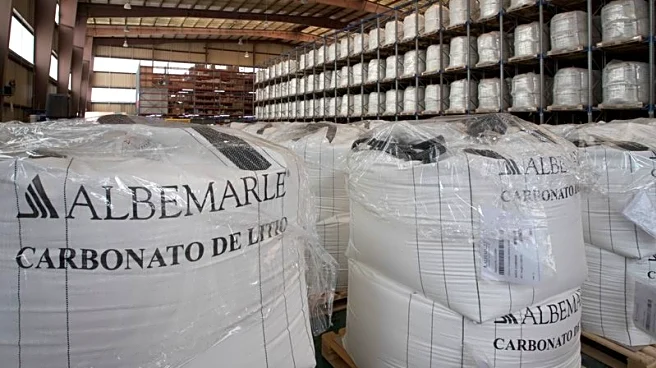What's Happening?
Robert Menendez, a former U.S. Senator from New Jersey, has been sentenced to 11 years in prison for bribery, foreign agent, and obstruction offenses. Menendez, along with Wael Hana and Fred Daibes, was convicted of accepting bribes in exchange for political favors, including acting as a foreign agent for Egypt. The sentencing follows a nine-week jury trial where Menendez was found guilty of multiple charges, including conspiracy to commit bribery and obstruction of justice.
Why It's Important?
The sentencing of Menendez highlights significant concerns about corruption within the U.S. political system. As a former chairman of the Senate Foreign Relations Committee, Menendez's actions have raised questions about the integrity of U.S. foreign policy decisions. The case underscores the potential vulnerabilities in political oversight and the influence of foreign entities on American lawmakers. This development may lead to increased scrutiny and calls for reforms in campaign finance and lobbying practices to prevent similar incidents in the future.
What's Next?
Menendez has vowed to appeal his conviction, which could lead to further legal proceedings and public debate over the case. The political ramifications are likely to affect upcoming elections, as candidates may distance themselves from Menendez and emphasize anti-corruption measures. Additionally, the case may prompt legislative efforts to strengthen ethical standards and transparency requirements for public officials.
Beyond the Headlines
The Menendez case raises ethical and legal questions about the role of personal relationships in political decision-making and the potential for conflicts of interest. It highlights the challenges in balancing political influence and foreign relations, with long-term implications for public trust in elected officials and advocacy for stricter regulations on political conduct.











